3170-0036 (National Survey on Youth Financial Behavior) Survey Research Plan
Generic Information Collection Plan for Qualitative Consumer Education, Engagement and Experience Information Collections
3170-0036 (National Survey on Youth Financial Behavior) Survey Research Plan
OMB: 3170-0036


-
CFPB Youth Financial Behavior Online Survey
Research Plan
Submitted to:
Consumer Financial Protection Bureau
1700 G Street, NW
Washington, DC 20552Submitted by:
ICF Incorporated, LLC
9300 Lee Highway
Fairfax, VA 22031
July 25, 2022
The purpose of this research is to collect nationally representative data on youth attitudes and behaviors related to personal finance, especially regarding the two qualitative studies in progress focused on financial technology and family discussions about money. To achieve this, ICF will conduct a national online survey of youth ages 16-24 that covers:
Respondents’ uses of and attitudes toward financial technology apps, including frequency and method of use
Respondents’ sources of financial advice, including which sources they find most helpful
Respondents’ discussions about money within their households.
This Research Plan describes ICF’s strategy for conducting these data collection activities, including:
Eligibility criteria, including recruitment specifications
A description of how the survey will be fielded using a national panel
A description of the survey instrument
Once finalized, this research plan will form the basis of the package submitted for approval to CFPB’s Data Intake Group (DIG) and the Office of Management and Budget (OMB).
Eligibility Criteria
The primary eligibility criteria for students are that all participants must be between the ages of 16 and 24 years old and live in the United States. Approximately one quarter of responses will be from each of four age categories: (1) 16-17; (2) 18 to 20; (3) 21-22; and (4) 23-24. ICF will work with the panel vendor to ensure that the final set of respondents is representative of the US population in terms of gender, ethnicity/race, geographic region, and level of household income.
Fielding Process
ICF will conduct this survey through MFour, an established research panel that ICF frequently partners with for similar work. This research panel will be responsible for compiling a sample according to the specifications mentioned above, in addition to sending invitations and reminders to participants, monitoring and updating ICF on responses daily, and sending participant’s incentives after survey completion.
We do not anticipate that there will be a screening instrument for this survey; all MFour research panel participants aged 16 to 24 will potentially qualify.
ICF will remain in constant communication with the CFPB and the research panel to provide updates on the recruitment process and check for updates to the project specifications.
Survey
Appendix A provides a draft of the national survey that will be administered to youth aged 16 to 24 in the United States. The survey contains a series of 14 multiple choice and Likert-style questions that gauges young peoples’ uses of and attitudes toward financial apps in various categories, including peer-to-peer payment, online banking, investing, budgeting, credit monitoring, cryptocurrency, and Buy Now Pay Later (BNPL). The survey also asks about where respondents receive their financial advice, including but not limited to online sources such as social media. Additionally, the survey seeks to understand young peoples’ overall attitudes and behaviors around money, including the frequency of discussions of money with friends or relatives, popular forms of payment, and experience learning about personal finance in formal education settings.
The survey does not contain basic demographic information (e.g. geography, household income, age, race/ethnicity, educational level, etc.) because the national panel already has this information for potential respondents. The survey will take approximately 10 minutes to complete, and will be compatible on all devices, including computer, tablet, and mobile phone.
Prior to going live, this survey will be run through multiple rounds of internal review and will include checks for compliance, spelling/grammar, and overall layout. It will be user-tested by the ICF team across all possible devices (computer, phone, tablet, etc.).
In appreciation of their participation, all participants will receive an incentive valued less than $5. The distribution of the incentive will be handled by MFour.
Appendix A: Survey Instrument
Paperwork Reduction Act Statement
According to the Paperwork Reduction Act of 1995, an agency may not conduct or sponsor a collection of information, nor is a person required to respond to a collection of information unless it displays a valid OMB control number. The OMB control number for this collection is 3170-0036, expiring 10/31/2022. The time burden required to complete this collection of information is estimated to be 15 minutes per response. Comments regarding this collection of information (e.g comments regarding the time burden per response, suggestions for reducing the time burden per response, and/or suggestions for maximizing the utility of the collected information) should be submitted to the Consumer Financial Protection Bureau at CFPB_PRA@cfpb.gov.
How often do you use each of the following?
|
Never |
Less than once a month |
At least once a month |
At least once a week |
Daily |
|
|
|
|
|
|
|
|
|
|
|
|
|
|
|
|
|
|
|
|
|
|
|
|
|
|
|
|
|
|
|
|
|
|
|
|
|
|
|
|
|
|
How much useful financial advice do you get from each of the following sources?
|
None |
A small amount of useful advice |
Some useful advice |
A lot of useful advice |
Parents or other relatives |
|
|
|
|
Friends |
|
|
|
|
Coworkers |
|
|
|
|
YouTube |
|
|
|
|
Google or other web searches |
|
|
|
|
Blogs or electronic newsletters (such as Substack) |
|
|
|
|
Online forums (such as Reddit) |
|
|
|
|
Social media (such as TikTok, Instagram, or Twitter) |
|
|
|
|
Podcasts |
|
|
|
|
Individual meetings with experts, like financial advisors or coaches |
|
|
|
|
When you are choosing whether to use a mobile app, how important are each of the following to you?
|
Not at all important |
Slightly important |
Important |
Very important |
How easy the app is to use |
|
|
|
|
The amount of storage the app takes on my phone |
|
|
|
|
How much of my personal information the app uses or shares |
|
|
|
|
The cost of the app, including fees |
|
|
|
|
Whether other people I know are using the app |
|
|
|
|
How often do you discuss money with parents/guardians or other adult relatives?
Never/hardly ever
Once or twice a month
Once or twice a week
Almost every day
What is the primary language you speak at home?
English
Spanish
Chinese
Haitian Creole
Tagalog
Korean
Vietnamese
Russian
Arabic
Other (Specify)
How often do you discuss money with friends or peers?
Never/hardly ever
Once or twice a month
Once or twice a week
Almost every day
Do you have a checking or savings account with a bank or credit union?
Yes
No
Do you have a credit card?
Yes
No
Have you ever invested in, traded, or used a cryptocurrency such as Bitcoin or Ethereum?
Yes
No
I have never heard of cryptocurrency
If you made a $30 purchase at a store, how would you most likely pay for it?
Cash
With a physical credit card
With a physical debit card
Using a mobile app like Apple Pay or Google Pay
Other (specify): _________________________________
Which of the following best describes how personal finance topics like budgeting, saving, and investing have been taught in your high school/college courses?
I have taken or am taking a course primarily focused on personal finance topics.
I have not taken a course on personal finance, but teachers have discussed personal finance topics in class.
I do not remember my teachers ever discussing personal finance topics in class.
(If response to previous item = a or b) How often did you discuss what you learned in school about personal finance with your parents or other family members?
Never
Rarely
Sometimes
Frequently
Have you learned about personal finance topics like budgeting, saving, and investing from any of the following? (Check all that apply)
Scouting or 4-H program
After-school program
Programs run by religious institutions
An employer
Parents or other relatives
Which of the following best describes your educational status?
I am currently in high school.
I have not graduated high school and have not enrolled in any educational institution.
I have graduated high school and have not enrolled in any educational institution.
I am currently enrolled in a two-year college.
I am currently enrolled in a four-year college.
I have graduated from a two-year college.
I have graduated from a four-year college.
I attended an institute of higher education but did not graduate and am no longer enrolled.
| File Type | application/vnd.openxmlformats-officedocument.wordprocessingml.document |
| Author | Saucier, Olivia |
| File Modified | 0000-00-00 |
| File Created | 2023-08-25 |
© 2026 OMB.report | Privacy Policy